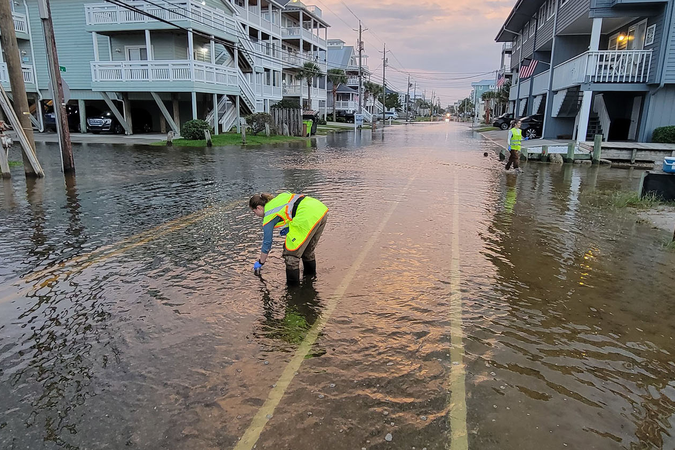Priorities and Effectiveness in Wildfire Management: Evidence from Fire Spread in the Western United States
RFF Fellow Matt Wibbenmeyer is a co-author to this journal article that investigates determinants of wildfire suppression efforts and finds that fires are more likely to stop spreading as they approach homes, especially high-value homes.
Abstract
Costs of fighting wildfires have increased substantially over the past several decades. Yet surprisingly little is known about the effectiveness of wildfire suppression or how wildfire incident managers prioritize resources threatened within a wildfire incident. We investigate the determinants of wildfire suppression effort using a novel empirical strategy comparing over 1,400 historical fire perimeters to the spatial distribution of assets at risk. We find that fires are more likely to stop spreading as they approach homes, particularly when homes are of greater value. This effect persists after controlling for physical factors (fuels, landscape, and weather) using a state-of-the-art wildfire simulation tool. As well, the probability that spread will be halted is affected by characteristics of homes 1–2 kilometers beyond a fire’s edge. Overall, we find that suppression efforts can substantively affect wildfire outcomes but that some groups may benefit more from wildfire management than others.
Authors

Andrew Plantinga
University of California, Santa Barbara

Randall Walsh
University of Pittsburgh




